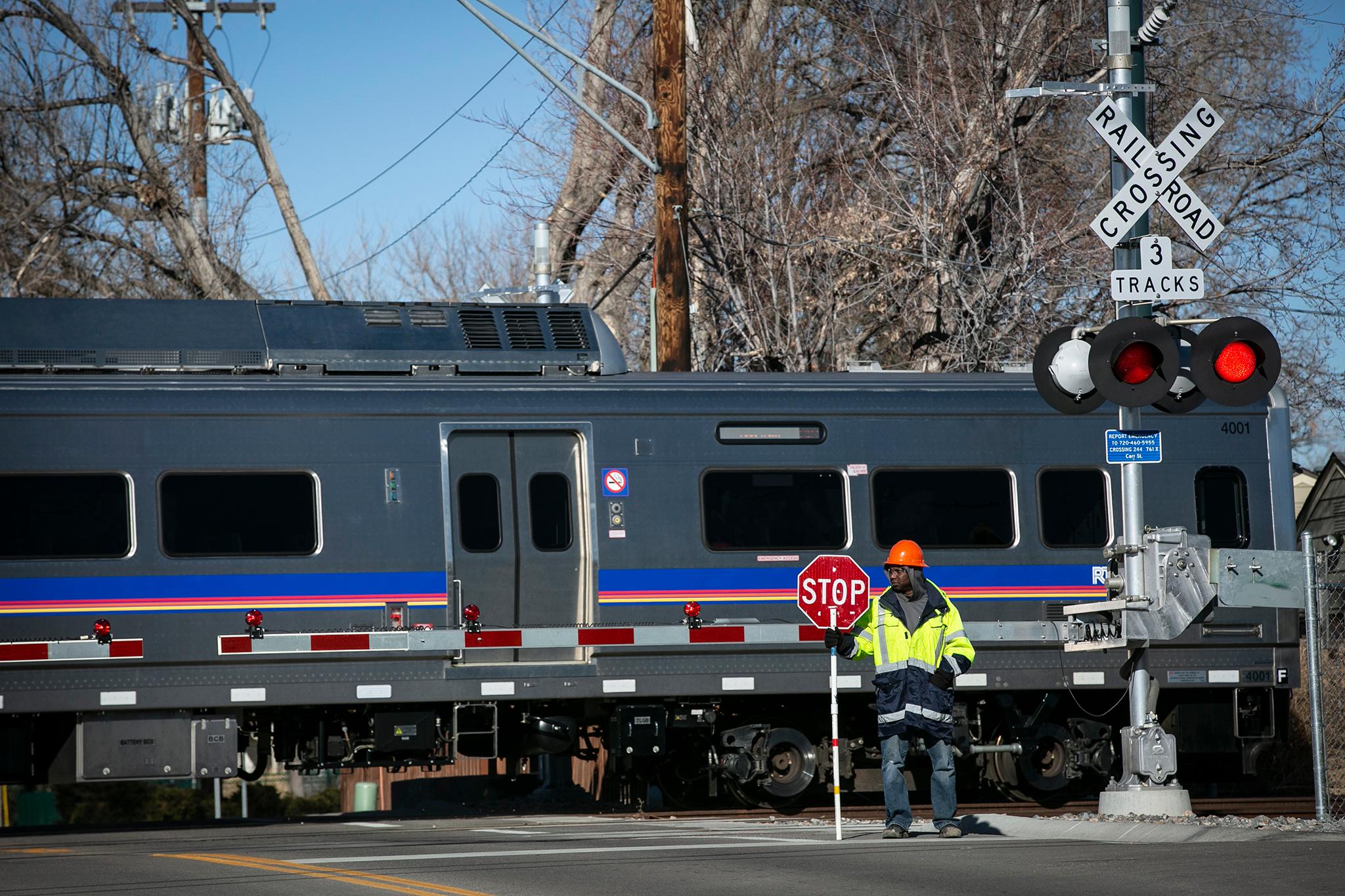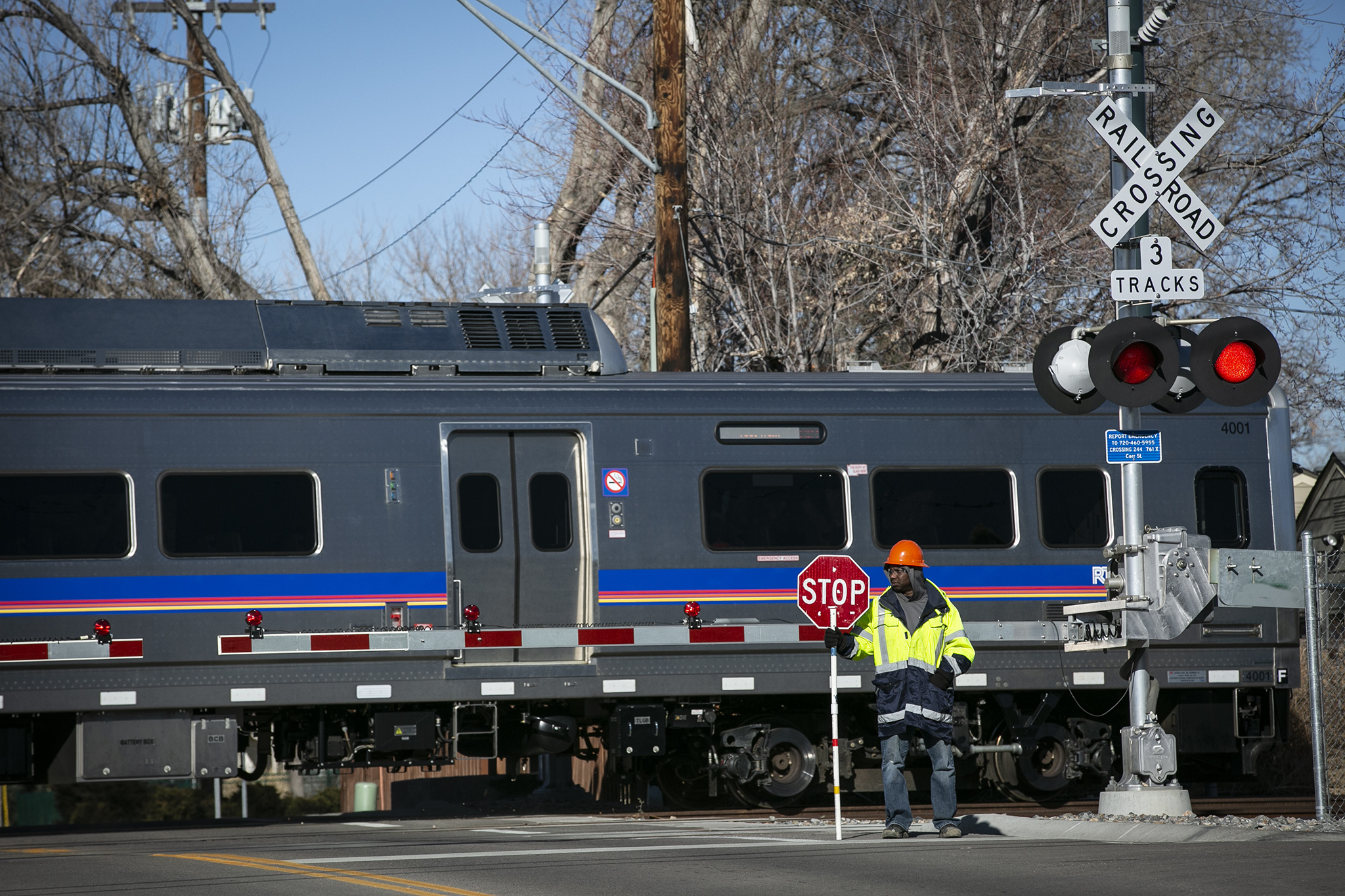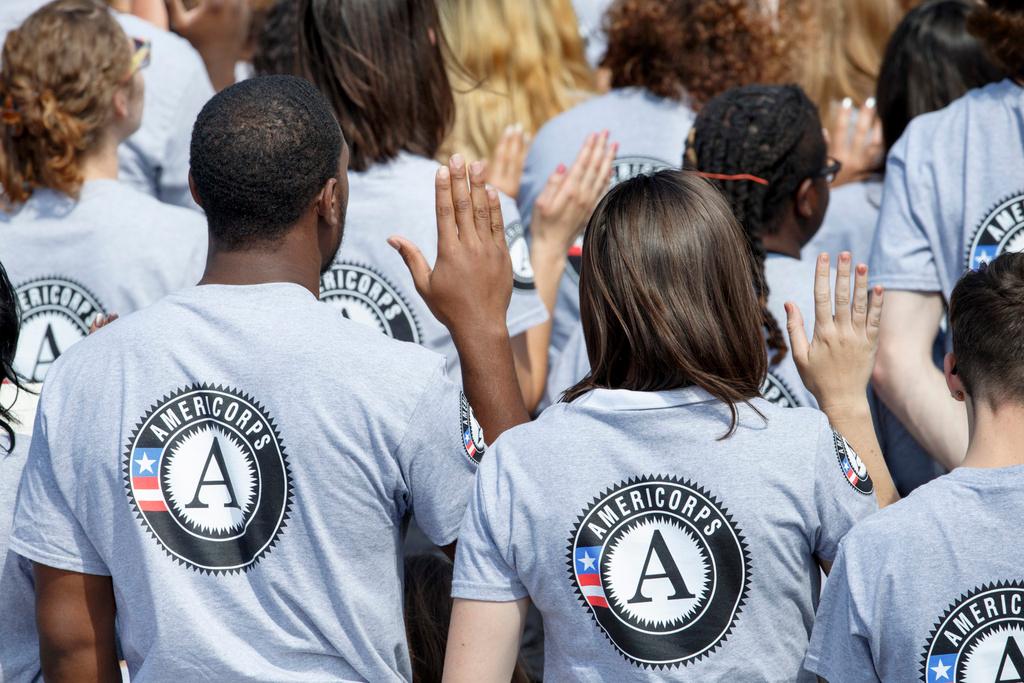

The Regional Transportation District is threatening to terminate its contract with the private company that built and operates Denver's commuter rail lines because it says the company is unable to address safety concerns and unresponsive to issues raised by regulators.
RTD sent Denver Transit Partners a letter Tuesday informing the company that it will end the contract unless it fixes a number of issues on the A Line to the airport, B Line to Westminster, and G Line to Arvada, within 30 days, or at least presents a plan within 20 days to fix them.
Chief among RTD's concerns are issues with the system’s crossing gates.
“RTD is disappointed that it had no choice other than to accept [this] system … which currently remains reliant upon crossing attendants and are operating without quiet zones in residential areas,” the letter states.
Despite the threat, the contract between the two remains in “full force and effect” for now, the letter states. “Accordingly, RTD expects DTP to work diligently, and in respectful partnership with RTD, to expediently prepare for commencement of revenue service on the G-Line and to continue revenue service on the A- and B-Lines in accordance with its obligations in the Concession Agreement.”
Both sides say the dispute won't interrupt service for riders.
John Thompson, executive project director for Denver Transit Partners, said RTD’s letter wasn’t unexpected and is likely a strategic move.
“It's disappointing,” he said. “But we got to put that to one side. These things are not that unusual in these sorts of contracts. That will all work itself out. It mustn't deflect us from task number one, which is to continue to run a best-in-class service."
The two entities stayed in lockstep for years, even after troubles with crossing gates emerged as the A Line from Denver International Airport to downtown Denver opened in April 2016. But they’re now in district court after Denver Transit Partners filed a lawsuit last month, seeking to recoup millions of dollars in withheld payments and costs related to staffing crossing gates for more than two years.
Denver Transit Partners provided the letter to CPR News. RTD spokewoman Laurie Huff confirmed its veracity, and said the notice, “speaks for itself” and the dispute is solely commercial.
Impartial Panel Sides With Contractor
In its complaint, Denver Transit Partners argued that state and federal regulators changed how they interpret various laws — and that those changes are responsible for costly delays. The two sides had spent months trying to resolve the issue in a private dispute resolution panel. CPR News obtained the panel’s decision Wednesday via an open records request.
Most consequently, the dispute resolution panel focused on a September 2017 decision by the Colorado Public Utilities Commission to reject RTD’s request to remove crossing guards. By then, the panel said, the once-troubled crossing gates were working properly. But the PUC shot down RTD’s request, saying the transit agency had not presented new evidence.
“...more than half a year was lost between the September 2017 hearing and the next consideration by the CPUC in March 2018,” the panel wrote. “Because of the delay in submitting full information to the CPUC, DTP was required to retain crossing guards and to lose Revenue Service Payments for many months even though its design and operating met all contractual and statutory requirements.”
The panel said that the Public Utilities Commission’s decision constituted a change in law. That’s significant because it would entitle Denver Transit Partners to compensation, though the panel wasn’t able to determine how much. Thompson could not say how much compensation the company was seeking, either.
The panel sided with the private company in two other change in law disputes, though they are less consequential. The panel also rejected a number of Denver Transit Partners’ other claims.
The decision, however, is non-binding; the two sides landed in court after they were unable to come to an agreement. Denver Transit Partners filed its complaint last month, and RTD’s deadline to file their answer is Thursday. The panel’s decision may be admitted into evidence, according to two parties’ contract.
The lawsuit is the latest turn for the high-profile public-private partnership, one of the first such transit agreements in the U.S. The funding structure, which is more common in European countries, shifts risk in infrastructure projects to the private sector. In return, private companies get long-lasting contracts with a somewhat secure revenue stream — a government agency. RTD and Denver Transit Partners entered into a 34-year-long agreement in 2010.
Jonathan Gifford, director of the George Mason University Center for Transportation Public-Private Partnership Policy, said the dispute is being noticed by jurisdictions across the country.
“It's troubling that they have not been able to resolve this in the dispute resolution process,” Gifford said.
Separately, the credit rating agency Moody’s said earlier this week it would review nearly $400 million in Denver Transit Partners’ bonds for possible downgrade. Moody’s analysts had warned investors about problems with the deal earlier this year as well.








